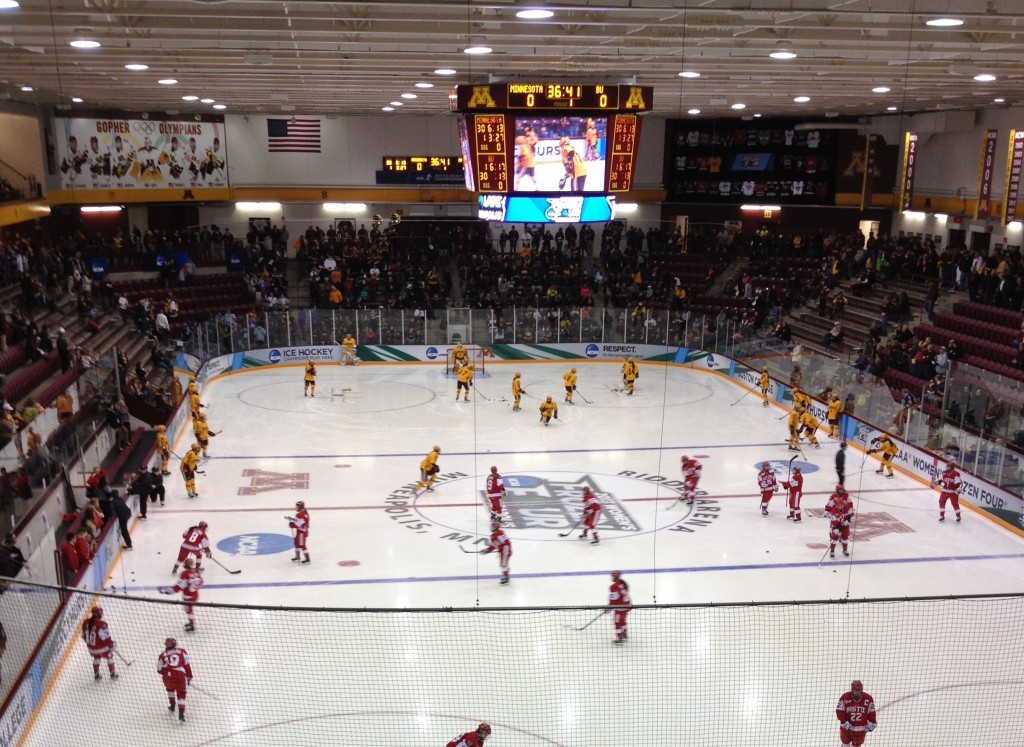Women’s college hockey will have quite a season-opening tournament to drop the puck on what could be the most competitive season in the history of the sport.
The University of Minnesota released their 2014-15 schedule Friday afternoon, and it confirmed a season-opening tournament that other program’s schedules had alluded to for weeks. The four time NCAA champion Gophers will host three teams at Ridder Arena during the weekend of October 3rd and 4th representing the geographic expanse of D1 women’s hockey: St. Cloud State, Boston University and Penn State.
Boston University, coming off their third straight Hockey East Championship, will start off their tenth season as a varsity program by playing a St. Cloud State squad led by new coach Eric Rud in Friday’s early game. Afterwards, third-year program Penn State, coming off a somewhat controversial off-season, will face last year’s national runner-up Minnesota. On Saturday afternoon, the Nittany Lions will play the Huskies, and the nightcap will be a rematch of the 2013 National Championship game and 2014 NCAA Quarterfinal, with the Terriers taking the ice against the Gophers.
Saturday’s Minnesota-Boston University matchup will have incredible symmetry for women’s hockey diehards. Both teams will return big-name Olympians to their roster the night before: USA’s Amanda Kessel for the Gophers and Canada’s Marie-Philip Poulin for the Terriers. The last game each played for their college teams? The 2013 NCAA title game at Ridder.
This season-opening tournament is significant in the women’s hockey landscape. For 18 years, men’s college hockey has had their Icebreaker, a four team tournament in the season’s early weeks that included teams from all over the country. The Icebreaker was a chance for powerhouses across conferences to challenge each other early and set a tone for the remainder of the season. Women’s hockey has been slow to adopt a similar model. Midwestern teams rarely would travel to the East Coast, and vise versa, given travel costs and some long-standing superiority complexes.
With Minnesota bringing in teams from Hockey East and College Hockey America to start their season, women’s college hockey may finally have their equivalent. It’s a giant leap for a sport building off an Olympic jump in popularity in a new landscape of further parity, given Clarkson’s groundbreaking national championship.
